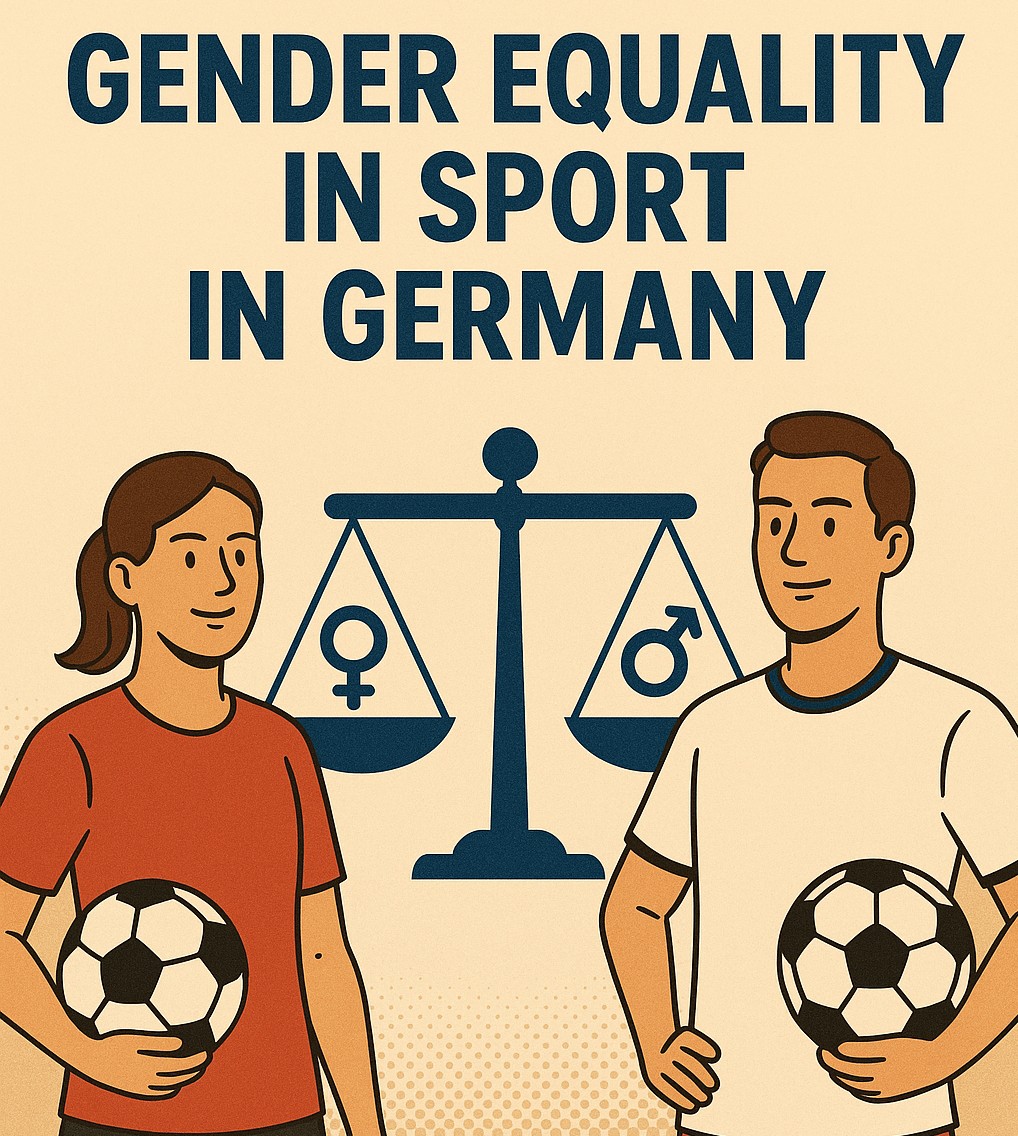GENDER EQUALITY IN SPORT IN GERMANY

In the last decade, women’s participation in sport in Germany has been on the increase.
In the 16-24 age group, there are fewer girls and women actively engaged in sport than boys and men. Whilst in the 45-75 age group, the opposite is the case.
As regards coaching and leadership positions at all levels of organised sport, especially at the elite level, women are underrepresented. For example, their representation on the boards of National Sports Federations is 17%; whereas this figure is 26% for women’s representation on the boards of sports clubs in Germany.
In association football, the German women’s national team supports girls’ football projects and promotes equality for women from all backgrounds.
There are significant differences regarding media coverage of men’s and women’s sports, which tends to be focused on men’s sports, with a preponderance of male commentators and sports journalists.
There is also a significant gender pay gap between women and men in football in Germany. Women players in the First Division of the German Bundesliga earn, on average, €3,500 (around Sw. Frs. 3,400) per month; whilst their male counterparts can earn up to €500,000 (around Sw. Frs. 484,000) per month, when performance and other bonuses are taken into account.
One of the reasons for the lack of gender equality in German sport may be attributed to the continuance of traditional gender roles in German society, especially in rural areas, where women are engaged in housework, childcare and other kinds of unpaid work.
The recent ‘Sport for Development’ initiative of the German Federal Ministry for Economic Cooperation and Development (BMZ) is aimed at addressing the gender equality gap in German sport at all levels.
We advise on all kinds of discrimination in sport in Germany, including gender discrimination, and disputes, and, for further information, please email the Head of our German Desk, Oliver Fischer, at fischer@valloni.ch.